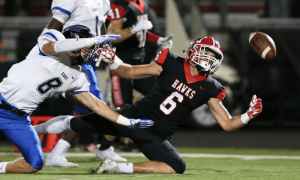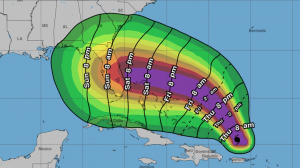
I just read an interesting article about how President Trump is diverting a large amount of money from various military projects in Guam in order to build the Border Wall and how it illustrates Colonial Injustice.
In the article the spokesperson for Prutehi Litekyan: Save Ritidian expresses the following sentiment: Our organization is conflicted about the means in which the pause was achieved because these are two instances of colonial injustice, one impacting the other. Let me explain.
The United States is in the process of moving about 5,000 Marines from the island of Okinawa in Japan to Guam. The reason they are doing this is because the Marines and everything required to support them is causing a great deal of congestion on the island. The cost of the move is over $8 billion dollars which includes building all sorts of support infrastructure on Guam including a well, a live-fire training range, and a munitions storage facility.
How is all of this related to Colonial Injustice? It’s a bit complex but basically there are people both in Japan and Guam who have no desire to host a large group of Marines along with their attendant requirements. Now, to be fair, there are also people from those nations who eagerly embrace the U.S. Military presence because of the tax dollars that come with it. That enormous amount of money buys us foreign support but also creates a great deal of resentment.
Imagine the government of France decided to put a huge military base in St. Louis, Missouri. There would be those who would welcome the influx of money but others who would not appreciate the presence of a foreign power’s military arm on their land. The soldiers so housed would certainly commit some crimes as has happened in Okinawa and Guam.
This is part and parcel of Colonial Injustice. We use our money to house our military in foreign lands against the will of some of the people of those nations. We essentially bribe our way into their country.
Some of the people in Guam, the group aforementioned specifically, is unhappy their nation is being further occupied by U.S. troops and their land is being taken for the facilities to house and train the Marines. Again, to be fair, the government of Guam is more than happy to take our money and not everyone is opposed to the expansion. Still, I think it’s reasonable to call how we base our soldiers all over the world against the wishes of at least some of the people of those nations Colonial Injustice.
Prutehi Litekyan: Save Ritidian doesn’t want the United States in Guam and they are happy the money for the project is being diverted and delaying the move. They delay means the Marines will reside on Okinawa for longer than was planned. Thus, the conflict of emotions for the group because they empathize with the people of Japan who don’t want the Marines there anymore.
The United States has become a colonial power committing injustices in foreign lands on a scale almost beyond imagination. This engenders a great deal of resentment in the populations of those countries but serves us by extending our military capabilities.
I’m not saying there are easy answers here, but I absolutely think we have far too many foreign bases and, in the long run, the activities associated with being a colonial power do not serve our interests.
Tom Liberman







